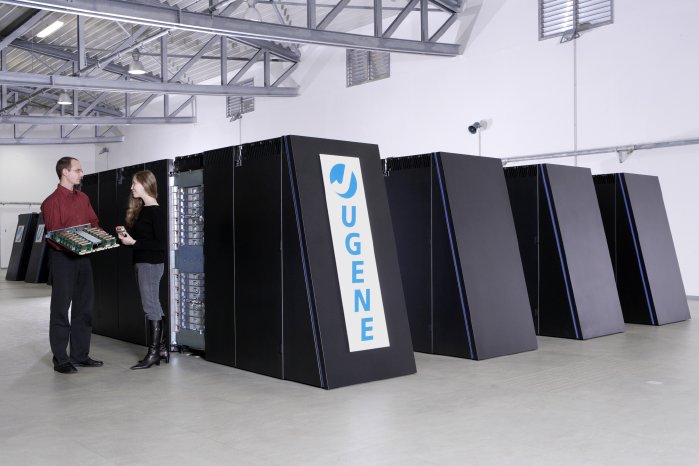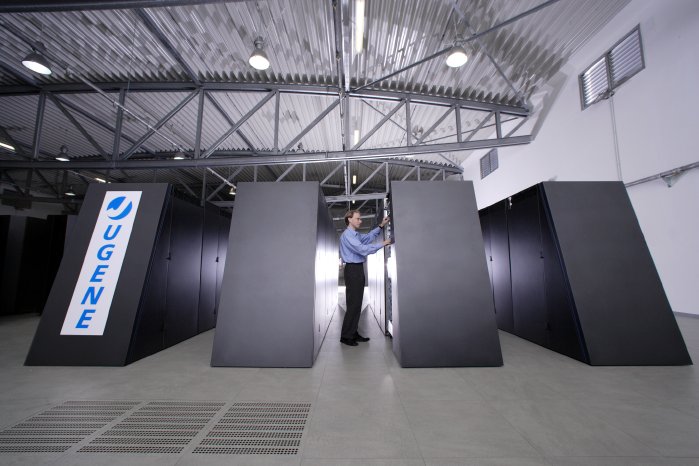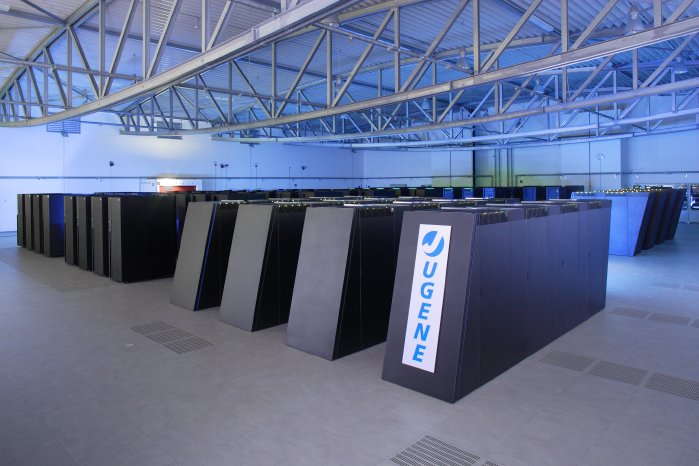"We have achieved unparalleled added value for research with JUGENE because not only do we possess supercomputers but we also boast a unique scientific environment", said Achim Bachem, Chairman of the Board of Directors at Research Centre Jülich. "In cooperation with our partners, we want to expand the GAUSS Center into a European supercomputing centre by 2009. This is something that we are aiming to achieve with the European partnership PRACE as part of the EU's 7th Framework Programme", continued Bachem. GAUSS is an alliance of the German supercomputing centres in Jülich, Munich and Stuttgart that was initiated by Federal Minister Schavan. PRACE is a partnership headed by Jülich, which aims to create a European supercomputing infrastructure
"The unique thing about our JUGENE is its extremely low power consumption compared to other systems even at maximum computing power", said Thomas Lippert, Director of the Jülich Supercomputing Centre, before he went on to say that "energy efficiency will be the dominant theme in future when it comes to the construction of supercomputers".
With its measured computing power (Rmax) of over 167 teraflops (trillion mathematical calculations per second), JUGENE is currently the most powerful computer of the new Blue Gene/P series manufactured by IBM. In Jülich, more than 65,000 processors are in operation connected through an extremely efficient communication network. The acquisition of the supercomputer JUGENE was made possible by Research Centre Jülich in cooperation with the federal state of North North Rhine-Westphalia, the Federal Ministry of Education and Research (BMBF) and the Helmholtz Association.
"The commitment shown by Research Centre Jülich in the field of supercomputing has proven to be beneficial in many ways for world-class research in Germany", said Martin Jetter, CEO of IBM Germany. "Jülich and the co-financing public authorities have set a precedent for Germany as a location for research and development."
Until the official inauguration in February next year, the experts at Jülich will prepare the computer for its first users and optimise all of the processes. Jülich stands out in that it does not just have supercomputers at its disposal but that it also has a highly efficient team of scientists who provide researchers from all over Europe with supercomputer user support.
The powerful computer is housed in 16 compact presses, each around the size of a telephone booth, in the computer room in Research Centre Jülich where its predecessors JUMP and JUBL are also kept. The three computers will complement each other to such an extent that every scientific simulation will be able to make use of a suitable tool. The Jülich supercomputers are used for calculations by around 200 European research groups. At Research Centre Jülich, scientists from all disciplines - from materials science and particle physics to medicine and environmental science - are afforded the opportunity to request computing time. An independent panel of experts allocate computing time to the best projects.
The TOP500 list was released at the Supercomputing Conference SC07 which is currently in progress in Reno, USA. The Jülich Supercomputing Centre (JCS) is amongst the exhibitors and is showcasing selected simulations from the environmental and materials sciences.



